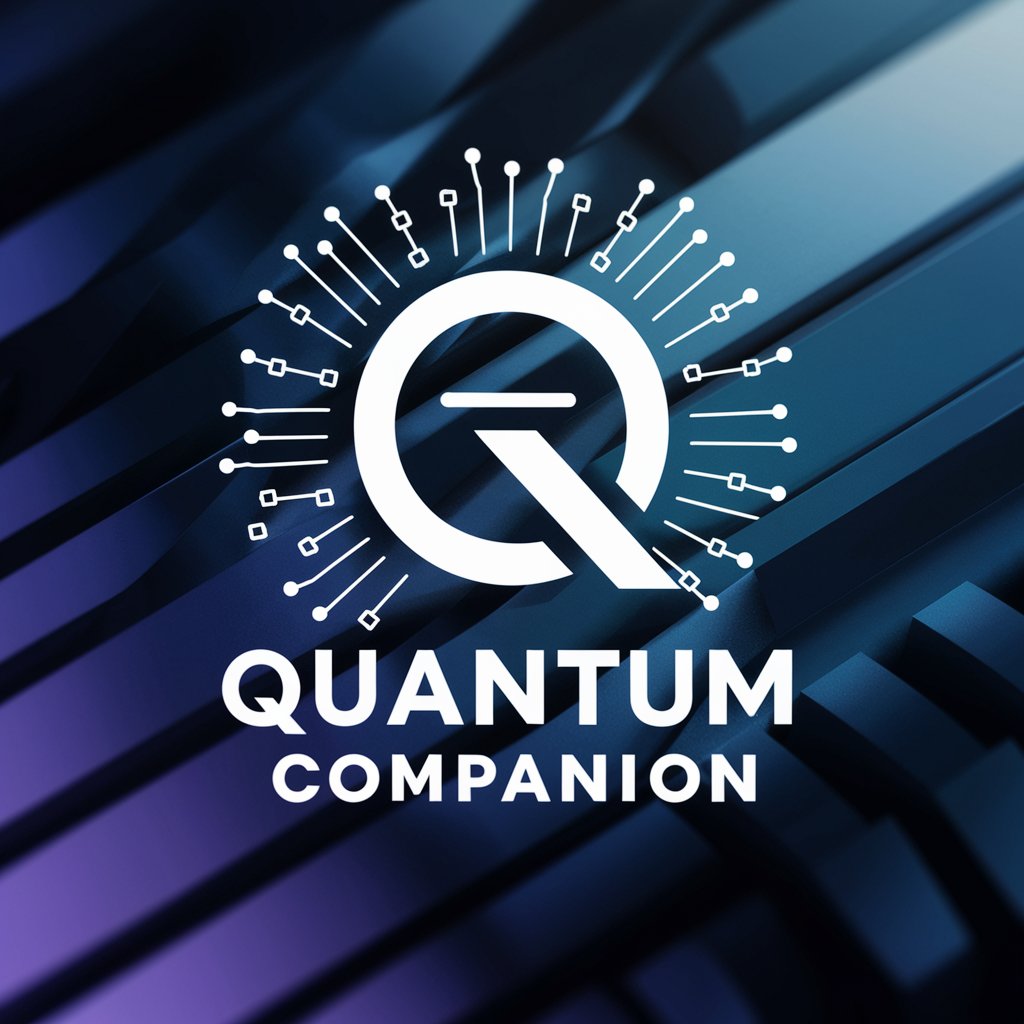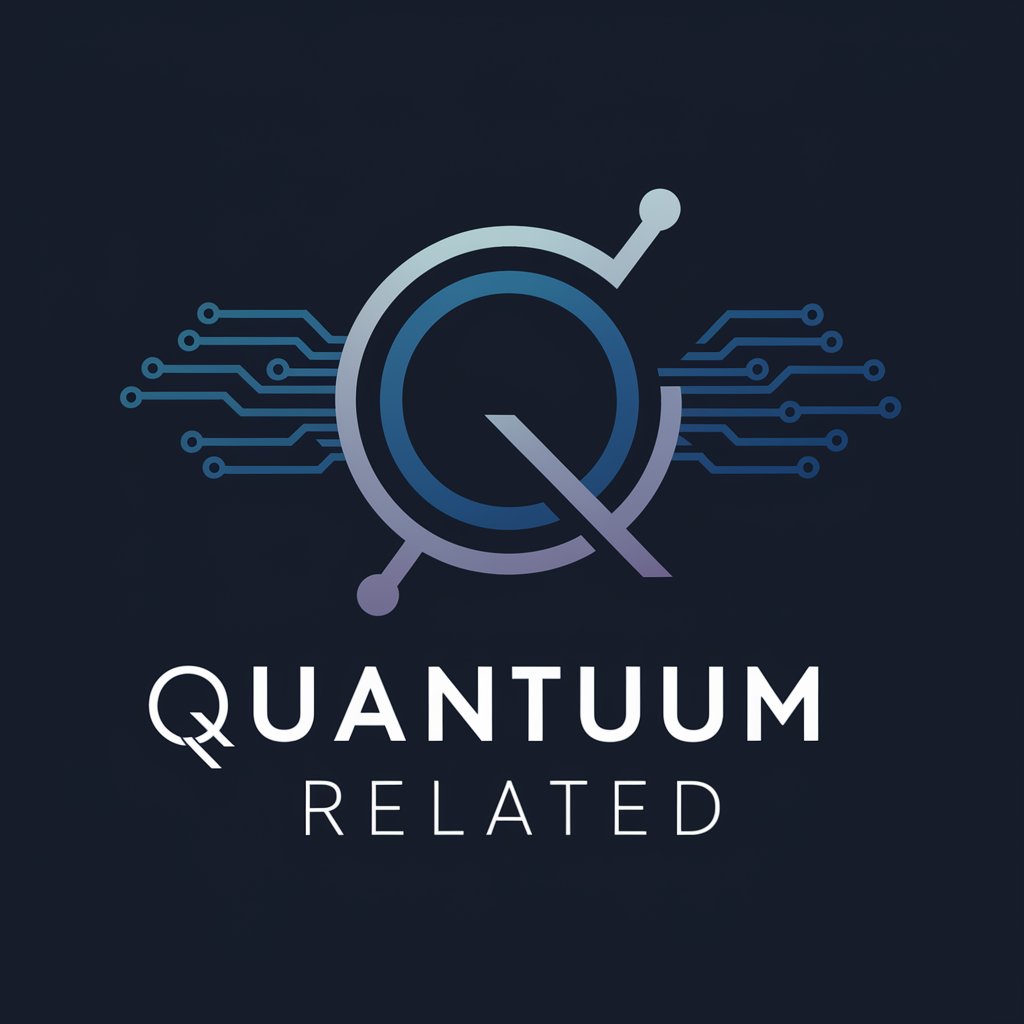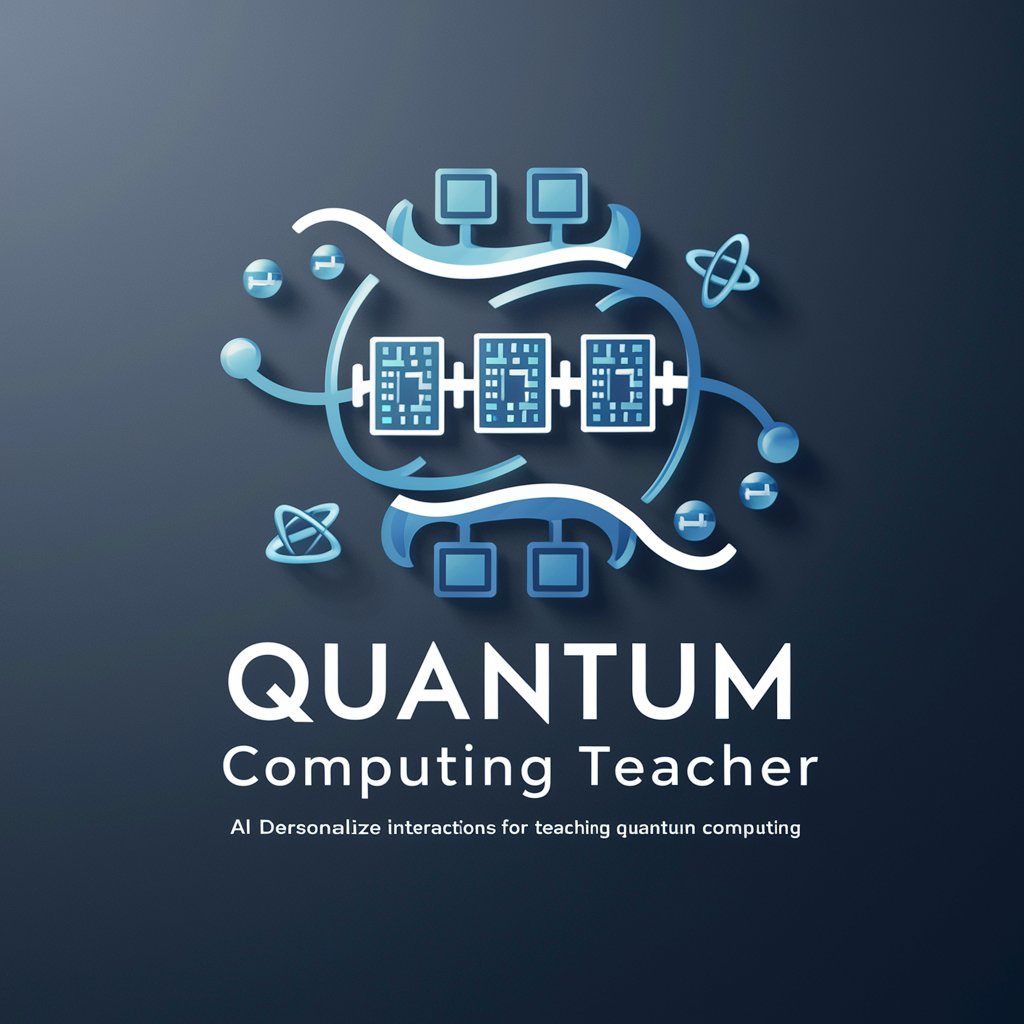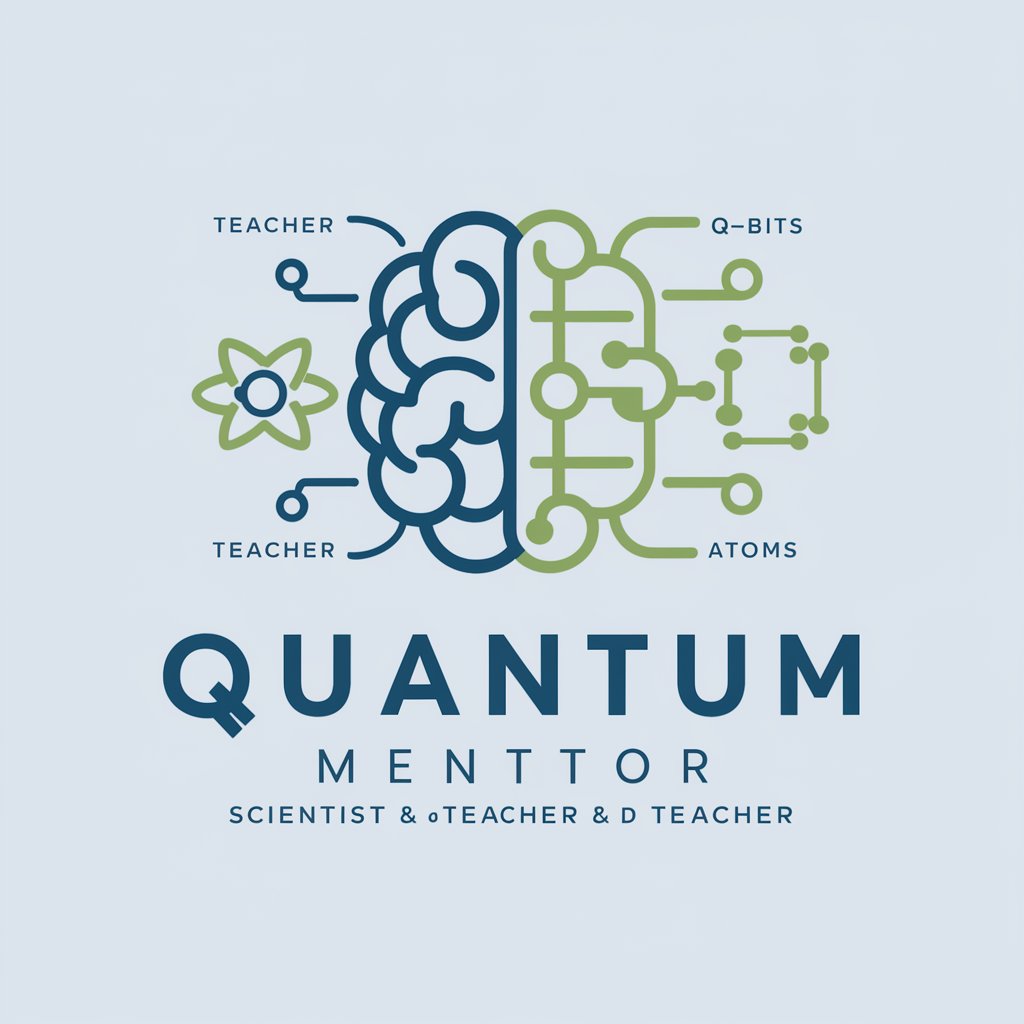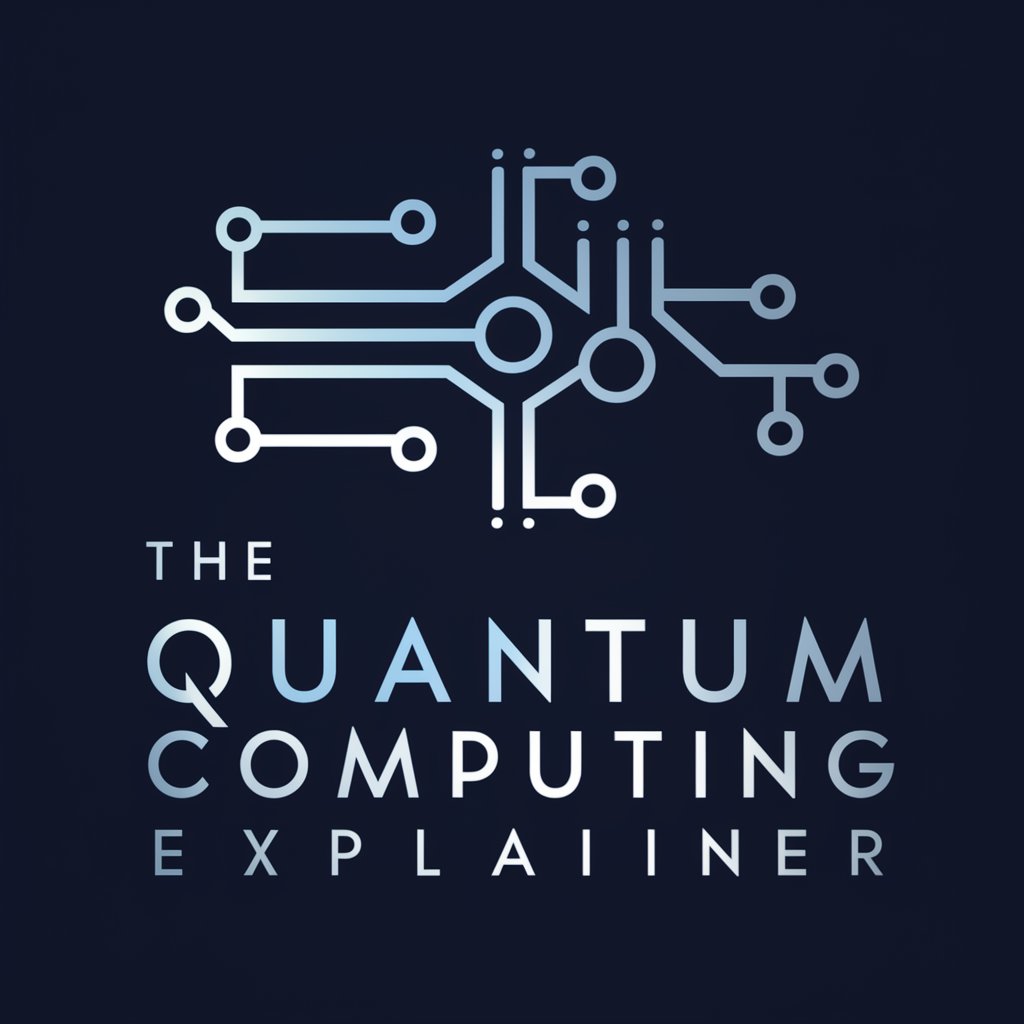
Quantum Computing Educator - Quantum Computing Insight

Demystifying quantum computing with AI
Can you explain what a qubit is?
What are the practical applications of quantum computing?
What are the latest advancements in quantum computing?
Recommend resources for learning quantum computing.
Get Embed Code
Introduction to Quantum Computing Educator
The Quantum Computing Educator is a specialized digital tool designed to demystify the complex and often intimidating field of quantum computing for beginners, students, enthusiasts, and professionals seeking foundational knowledge. It translates intricate quantum mechanics principles, qubits, quantum gates, algorithms, and their applications into accessible, easy-to-understand language. By providing detailed explanations, real-world applications, and the latest advancements, it aims to make quantum computing approachable to a wider audience. For instance, it can explain how a quantum bit differs from a classical bit by using the analogy of a spinning coin (quantum bit) that can represent multiple states simultaneously, as opposed to a coin that must land heads or tails (classical bit). Powered by ChatGPT-4o。

Main Functions of Quantum Computing Educator
Concept Explanation
Example
Explaining superposition and entanglement in simple terms, such as comparing superposition to a spinning coin that is both heads and tails until it lands, and entanglement as a pair of dice that always land on matching numbers regardless of the distance between them.
Scenario
Used in educational settings, like classrooms or online courses, to provide students with a foundational understanding of quantum mechanics without requiring advanced mathematics.
Latest Advancements
Example
Discussing recent breakthroughs, such as the development of a new quantum error correction technique that significantly reduces error rates in quantum computations.
Scenario
This function is valuable for researchers and professionals in the field to stay updated on the latest progress and how it can impact future quantum computing applications.
Practical Applications
Example
Detailing how quantum computing is being used to optimize traffic flow in cities, by analyzing vast amounts of data to find the most efficient routes in real-time, which would be impossible for classical computers.
Scenario
Industry professionals can leverage this information to explore innovative solutions in logistics, urban planning, and beyond.
Ideal Users of Quantum Computing Educator Services
Students and Beginners
Individuals new to quantum computing who need a solid grounding in the basics without getting overwhelmed by the technical complexity. They benefit from simplified explanations and analogies that make abstract concepts more tangible.
Educators and Trainers
Teachers and trainers who require accurate, up-to-date information to develop curriculum or conduct training sessions. The Quantum Computing Educator serves as a reliable resource to supplement their teaching materials with real-world examples and applications.
Researchers and Industry Professionals
Those working on the cutting edge of technology and research who need to stay informed about the latest advancements and explore practical applications of quantum computing in their fields. This includes sectors like cryptography, drug discovery, and financial modeling.

How to Use Quantum Computing Educator
1
Start by visiting yeschat.ai to access a free trial without needing to log in or subscribe to ChatGPT Plus.
2
Select the Quantum Computing Educator from the available GPT options to initiate your learning session.
3
Formulate your questions or topics of interest related to quantum computing, such as qubits, quantum algorithms, or practical applications.
4
Utilize the provided resources and links for deeper dives into complex topics or for accessing the latest research and advancements.
5
Repeat your inquiries as needed to explore different facets of quantum computing, leveraging the tool’s capability to break down complex concepts into understandable terms.
Try other advanced and practical GPTs
BORIS
Empower Your Potential with AI

Constitution Companion
Unlock the Constitution with AI

! Smart Inventor !
Invent, Learn, and Innovate with AI

L'écrivain
Crafting Stories, Inspiring Writers

DJango
Your AI-Powered Music Matchmaker
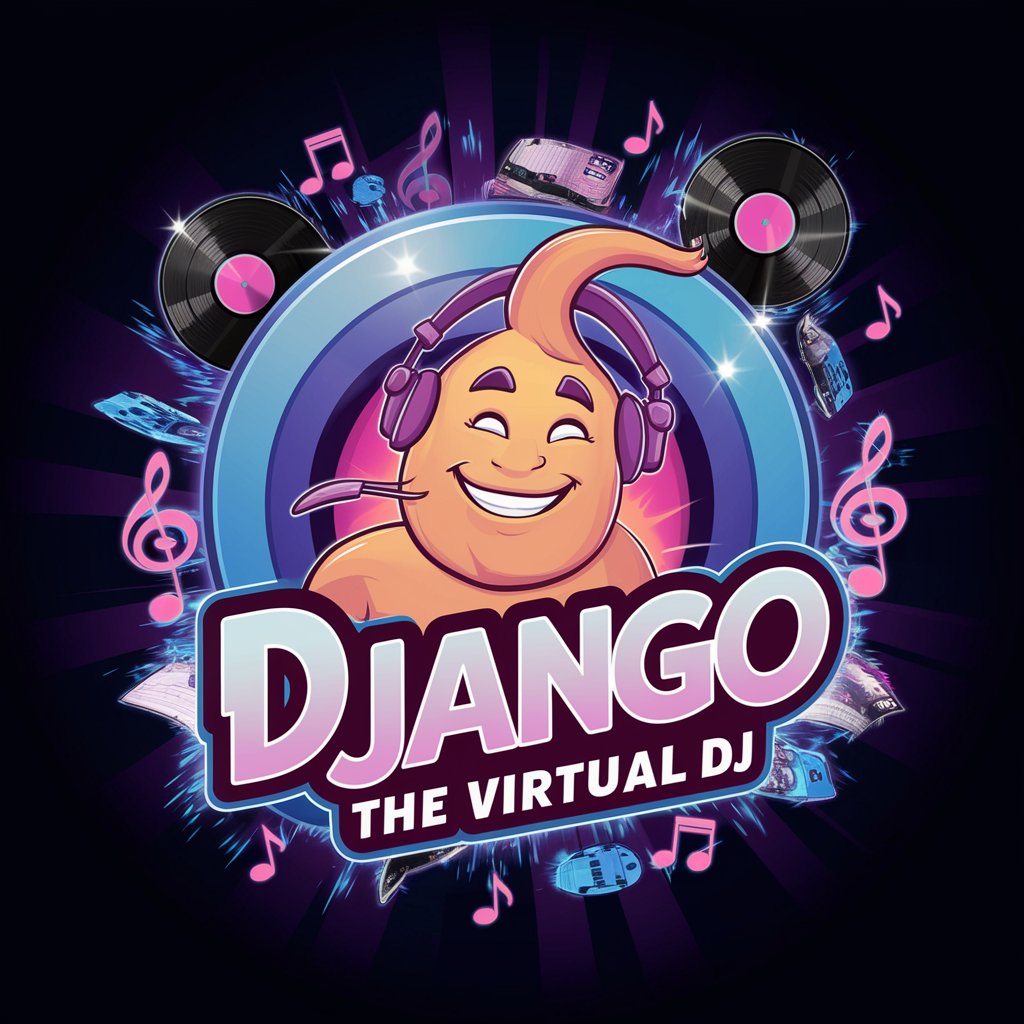
CrochetKitty AI
Crafting Your Crochet Dreams AI-Powered

F1 News and Knowledgebase
Your AI-Powered F1 Companion

Metaphysical Exploration Guide
Unlocking the Mysteries of Metaphysics with AI

Roadwise Coach
Drive smarter, not harder, with AI.

[⛨ Aegis ]⚫Notes.AI
Elevate your notes with AI insight.
![[⛨ Aegis ]⚫Notes.AI](https://files.oaiusercontent.com/file-I2CEzGQCjMXNG9kNZVxmEaj4?se=2123-10-21T13%3A43%3A43Z&sp=r&sv=2021-08-06&sr=b&rscc=max-age%3D31536000%2C%20immutable&rscd=attachment%3B%20filename%3D309a3cb8-48f0-4ada-b6e4-3c5be578e1e4.png&sig=vMZrXwcPGarbbf9%2Bmlsv0l6z/AbMbUsErRBpmRjpNp8%3D)
Super GPT
Empowering creativity and efficiency with AI.
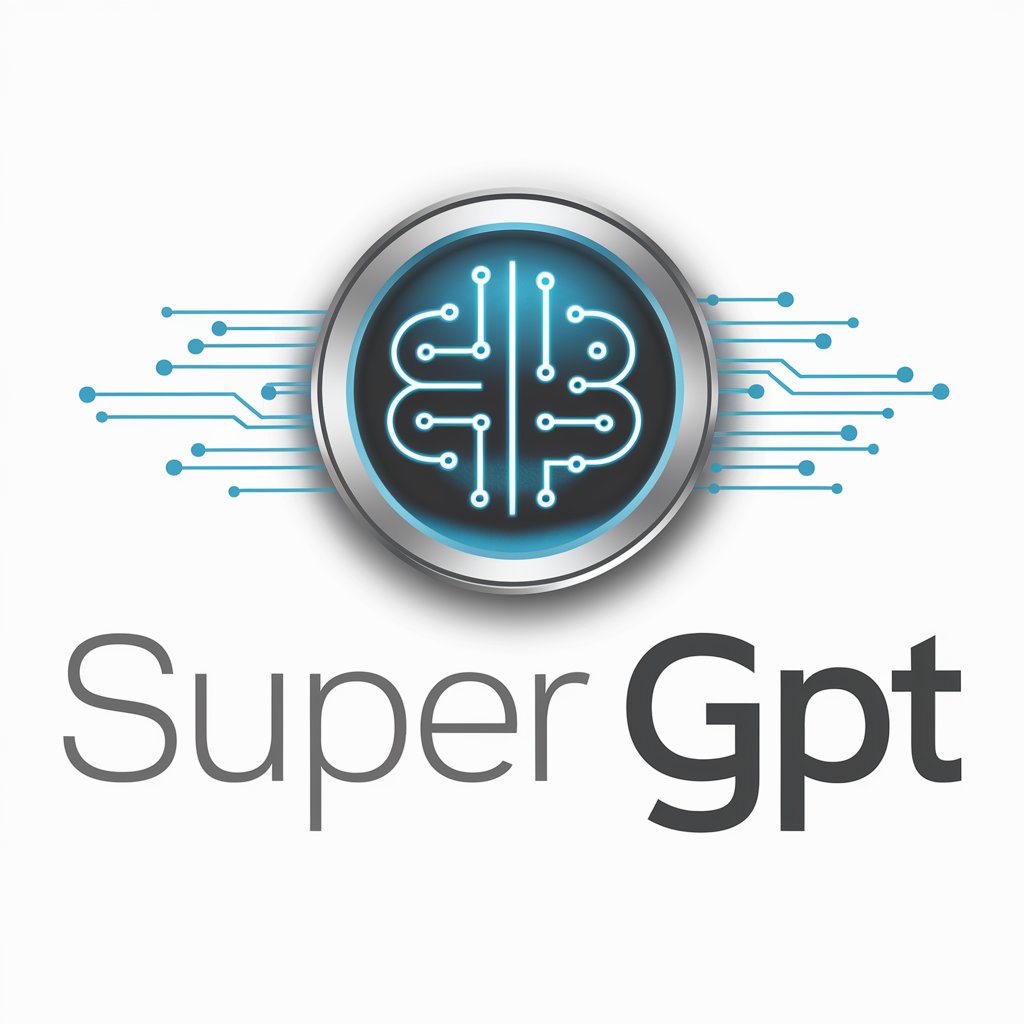
Guía Numismática
Unlocking the World of Coins with AI

Detailed Q&A on Quantum Computing Educator
What is a qubit and how does it differ from a classical bit?
A qubit, or quantum bit, is the fundamental unit of quantum information, representing a two-state quantum-mechanical system. Unlike a classical bit that can be either 0 or 1, a qubit can exist in a state of superposition, allowing it to represent both 0 and 1 simultaneously. This property enables quantum computers to process information in a fundamentally different and more powerful way than classical computers.
Can you explain quantum entanglement?
Quantum entanglement is a phenomenon where two or more particles become interconnected in such a way that the state of one (no matter how far apart the other is) instantly influences the state of the other. This principle is key to quantum computing and cryptography, as it allows for the creation of highly secure communication channels and for performing computations that leverage the entangled states to process complex problems more efficiently.
What are quantum algorithms and how do they differ from classical algorithms?
Quantum algorithms are sets of instructions designed for quantum computers to solve problems more efficiently than classical algorithms. Examples include Shor's algorithm for factoring large numbers exponentially faster than the best-known classical algorithms, and Grover's algorithm for searching unsorted databases with quadratic speedup. The difference lies in their use of quantum phenomena like superposition and entanglement to perform computations.
How can quantum computing impact machine learning?
Quantum computing has the potential to significantly impact machine learning by providing faster processing capabilities for complex calculations, such as optimization problems and pattern recognition. Quantum algorithms could enable quicker training of machine learning models by efficiently handling large datasets and performing computations that are infeasible for classical computers, thus accelerating the development of more sophisticated AI systems.
What are the current limitations of quantum computing?
The current limitations of quantum computing include the difficulty of maintaining qubits in a stable state due to quantum decoherence, challenges in scaling up the number of qubits while preserving their quantum properties, and the need for advanced error correction techniques to manage the inherent errors in quantum computations. Despite these challenges, ongoing research and development are aimed at overcoming these limitations, paving the way for practical quantum computing applications.
